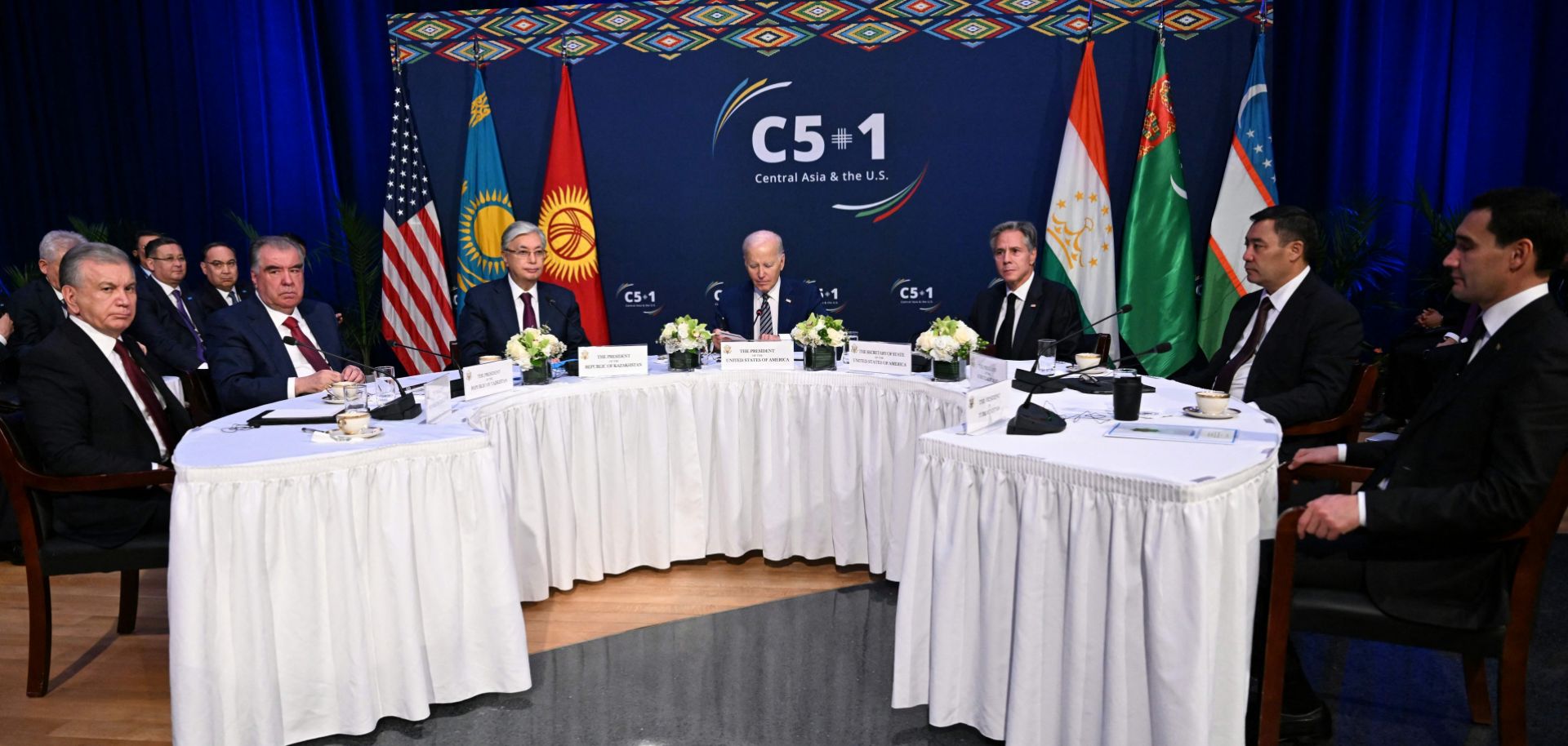SNAPSHOTS
Biden's Central Asia Meeting Demonstrates the Region's Growing Importance
Sep 22, 2023 | 14:13 GMT

U.S. President Joe Biden (C) and U.S. Secretary of State Antony Blinken (3R) participate in a meeting of the C5+1 with Kazakh President Kassym-Jomart Tokayev, Kyrgyz President Sadyr Zhaparov, Tajik President Emomali Rahmon, Turkmen President Serdar Berdymukhamedov and Uzbek President Shavkat Mirziyoyev in New York City on Sept. 19, 2023.
(Photo by JIM WATSON/AFP via Getty Images)
Subscribe Now
SubscribeAlready have an account?
